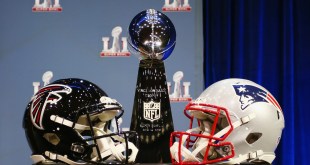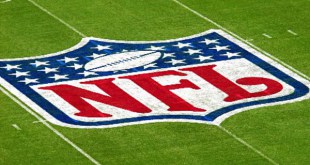Though “cheery” is inherent in the job description, the wages and working conditions for numerous NFL cheerleaders are far from happy. Now, the professional pom-pom’ers are high-kicking back.
Since January, former NFL cheerleaders for five different teams – the Oakland Raiders (Raiderettes), Cincinnati Bengals (Ben-Gals), New York Jets (Flight Crew), Buffalo Bills (Jills) and Tampa Bay Buccaneers – have filed lawsuits against their respective teams, alleging that they are paid less than the requisite federal and state minimum wages. The lawsuits commonly allege claims that the teams engaged in illegal wage theft in violation of state and federal labor laws. According to the complaints, the cheerleaders are only paid minimal amounts, if at all, for their work on game days, but are also required to work hundreds of unpaid hours training, performing and appearing at community and charity events. The complaints also allege that the cheerleaders are required to spend substantial funds out of their own pockets – for which they are not reimbursed – on everything from uniforms to travel to swimsuit calendars (for which they posed) and even for highly-specific beauty maintenance, including mandatory trips to costly nail and hair salons. All in all, according to the complaints, the actual pay the women received fell far below the statutory minimums.[i]
The cheerleaders’ allegations levied against the teams, particularly those involving a host of misogynistic and degrading treatment (including subjecting the cheerleaders to “jiggle tests”), and imposing invasive hygiene and dress requirements, are troublesome to say the least. Do the cheerleaders, however, ultimately have solid legal footing on which to stand? Making that determination requires a multi-step process analyzing whether the cheerleaders qualify as “employees” of their respective NFL teams and whether certain employment exemptions are applicable.[ii]
The Fair Labor Standards Act (“FLSA”) establishes minimum wage, overtime pay, record keeping and youth employment standards affecting employees “engaged in commerce” in the private sector and in federal, State and local governments. Under the FLSA, an “Employee” is defined as “any individual employed by an employer.” [iii] According to the United States Department of Labor, “[e]mployees of businesses that are engaged in interstate commerce or instrumentalities of interstate commerce are also generally covered [by the FLSA].” [iv] The FLSA mandates that covered, nonexempt Employees must be paid a minimum wage of $7.25.[v]
As NFL teams are certainly engaged in interstate commerce,[vi] their cheerleaders, assuming they are not exempted, are likely “employees” covered by the FLSA. This means that the sued NFL teams, taking the allegations in the lawsuits as true, would be in direct violation of the FLSA by failing to provide minimum wage. If the NFL teams are found to be in violation, the cheerleaders could be entitled to substantial amounts of back pay and other damages, including attorneys’ fees and liquidated damages in the amount of the unpaid compensation.
Yet, it’s not that simple. While the FLSA imposes numerous requirements on employers, it expressly exempts employers from its terms under certain situations. One of these exemptions is set forth under Section 213(a)(3), whereby any business that is “an amusement or recreational establishment” is not bound by the statute’s employer regulations, including the mandatory minimum wage. According to the statute, a business falls under the definition of “amusement or recreational establishment” if it does not operate for more than seven months in any calendar year.[vii] Should the NFL franchise defendants be determined to be seasonal employers, meaning they operate their business for no more than seven months of the year, they would fall under the FLSA’s statutory exemption and may pay their employees, including cheerleaders, sub-minimum wage.
This is where things begin to get interesting, as there are conflicting opinions amongst the courts regarding the status of professional sports organizations under the FLSA’s seven-month operation exemption. The Sixth Circuit was the first court to render an opinion on the subject.[viii] In Bridewell v. Cincinnati Reds, a group of stadium maintenance employees brought suit against Major League Baseball’s Cincinnati Reds, claiming the Reds violated the FLSA by failing to pay overtime wages as required by the statute. The Reds argued that the team was exempt from the law because its season does not run for more than seven months, even accounting for spring training (ordinarily, March-September). The Court, noting that the Reds had the burden of establishing entitlement to the narrowly-construed exemption, rejected the team’s argument, holding that the franchise operated a year-round establishment. In doing so, the Court concluded that there was a distinction between “operating” for more than seven months and merely providing recreation or amusement for its customers for more than seven months. As the Reds employed 120 year-round workers, it was clear their operations extended beyond just the playing season, and the team was subject the overtime pay requirements of the FLSA.[ix]
Conversely, the Eleventh Circuit ruled otherwise when presented with a similar set of facts.[x] In Jeffery v. Sarasota White Sox, a groundskeeper for the Sarasota White Sox sued the minor league baseball franchise for unpaid overtime in violation of the FLSA. The Court, however, concluded that the team was exempt from the FLSA’s overtime pay requirements. In direct contrast with Bridewell ruling, the Eleventh Circuit stressed that the proper focus under the FLSA’s seven-month operation exemption was the length of the team’s seasonal operation, not the length of time the employees performed their work. Since the minor league baseball season was a mere five months, and unlike in professional sports,[xi] the team’s primary revenue-producing operations occurred during the season, the Sarasota franchise was exempt from the FLSA’s overtime wage requirements.
According to attorney for the Raiderettes, Sharon Vinick, the cheerleaders don’t solely work during the NFL season but rather, “work from April, when they have tryouts, to January, when they are issued their paycheck; or minimally, from the first practice in May to December with the last game.” Surmised Vinick, “clearly, that’s more than seven month.” Meanwhile, the U.S. Department of Labor, which launched an investigation in the wake of the Raiderettes’ lawsuit, provided its input in the matter, announcing that it had found that the Oakland cheerleaders were “seasonal” employees not subject to the FLSA’s minimum wage guidelines. While instructive and potentially persuasive to the courts, the Department’s opinion is simply that: an opinion. It does not shield the teams from the lawsuits, as it is the courts’ domain to determine the meaning of the federal statute.[xii]
As such, it will be up to the individual courts (or arbitrators)[xiii] to determine how to weigh the applicable precedent in light of the cheerleaders’ allegations. With the status of professional sports teams under the FLSA still unsettled, how a future court applies the FLSA’s seasonal employer exemption in the cheerleaders’ respective lawsuits is decidedly uncertain. But there’s one thing that’s for sure, these women are out to prove they’re more than just a pretty face.
[i] While many of the statutory minimums have since been raised, at the times alleged in the complaints, the relevant State labor laws required, subject to certain exceptions, that employees be paid anywhere from $7.25 per hour (New York) to $8.25 per hour (New Jersey). The federal labor law, also subject to certain exceptions, sets the minimum wage at $7.25 per hour. [ii] As the cheerleaders’ respective lawsuits allege violations of State labor laws, which vary from State-to-State, for simplicity purposes, this article will primarily examine only the cheerleaders’ federal labor laws claims. [iii] 29 U.S. Code § 203(e)(1). [iv] Interstate commerce means any work involving or related to the movement of persons or things (including intangibles, such as information) across state lines or from foreign countries. - United States Dep’t of Labor. [v] 29 U.S. Code § 206(a)(1)(C). [vi] See Flood v. Kuhn, 407 U.S. 258, 282 (1972), in which the Supreme Court concluded by majority opinion that Major League Baseball was engaged in interstate commerce. [vii] 29 U.S. Code § 213(a)(3)(A). Under Section 213(a)(3)(B), a business will also be fall under the “amusement or recreational establishment” exemption if the business’ receipts from its six lowest revenue months of the previous year were less than 33 1/3% of its receipts in its six highest revenue months (i.e. the business’ receipts from September-February were at least three times greater than its receipts from March-August). As NFL teams usually receive a significant percentage of their revenues during the offseason (i.e. from season ticket deposits, broadcast rights agreements, sponsorship sales), franchises will typically not satisfy the six-months receipts provision and will likely need to rely on the statute’s seven-month operation clause to qualify for the exemption from the FLSA’s minimum wage requirements. [viii] Bridewell v. Cincinnati Reds, 68 F.3d 136 (6th Cir. 1995). [ix] See also, Liger v. New Orleans Hornets, 565 F.Supp.2d 680 (E.D. La. 2008). In Liger - where Hornets’ employees also brought a suit alleging violations of the FLSA for unpaid overtime wages – the Eastern District of Louisiana reached a similar decision as in Bridewell, ruling that because the totality of the Hornets’ business operations lasted more than seven months, the franchise was not exempt from the FLSA’s overtime pay requirements. According to the Court, the fact that the team employed over 100 personnel in year-round positions; that the team has the opportunity to participate in games for nine months each year (including preseason and postseason); and partakes in the annual NBA Draft, disqualifies it from the FLSA’s statutory exemption. [x] Jeffery v. Sarasota White Sox, 64 F.3d 590 (11th Cir. 1995). [xi] The Eastern District of Louisiana distinguished this portion of the Jeffery holding. According to the Liger Court, the operative scale of a minor league baseball team was not analogous to that of a NBA franchise. [xii] This is where things become significantly more complex regarding the distinction between State laws and the federal FLSA. While the FLSA contains the seasonal employer exemption, some State labor laws, such as California’s, do not have such an exemption. Therefore, even if a court were to find that the NFL teams were exempted under the federal statute, the State law-based claims would still survive. [xiii] Though the cheerleaders would like to keep their actions within the courts to increase the likelihood of settlement, it’s possible that many of the cheerleaders signed written employment agreements, which commonly provide that disputes with their respective NFL employers shall be subject to binding arbitration. This is reportedly the case for the Raiderette plaintiffs . The Sports Esquires Putting Sports on Trial
The Sports Esquires Putting Sports on Trial




